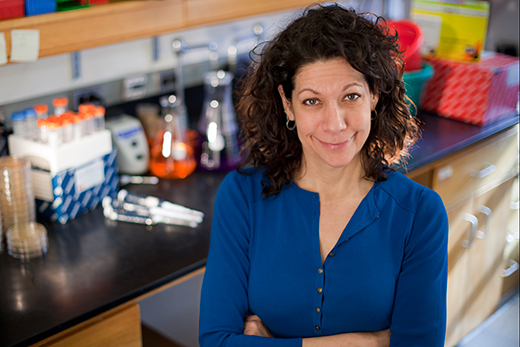The renowned molecular biologist known as the “bacteria whisperer” will deliver two addresses later this month as part of the 2016 Rhodes Lectureship sponsored by the Department of Biology.
Bonnie L. Bassler, chair of the molecular biology department at Princeton University, is an international leader in her field who discovered how bacteria communicate.
Bassler received a MacArthur Fellowship in 2002 — widely known as the “genius grant” — for her work on quorum sensing in bacteria, and she was also elected a member of the U.S. National Academy of Sciences and fellow of the American Academy of Arts and Sciences.
She rose to fame beyond the scientific community after delivering a TED talk in 2009 on how bacteria “talk” in a chemical language to accomplish group tasks. That lecture has since been viewed more than 1.9 million times.
Bassler has gone on to more accolades, winning a 2012 L'Oréal/UNESCO Prize Laureate for Women in Science for North America, earning the 2014 EMD Millipore Alice C. Evans Award for contributions toward the full participation and advancement of women in microbiology, and also winning the 2015 Shaw Prize in Life Science and Medicine.
“Through her fascinating studies of fluorescent marine bacteria, Dr. Bassler was able to discover an entirely new field of study, bacterial quorum sensing, that has enormously important implications for how bacteria interact in their environment and cause human disease,” says Steven L’Hernault, chair of Emory’s Department of Biology.
“It is a perfect example of how basic scientific inquiry can, in short order, have significant practical implications,” he adds.
Bassler will speak at 4 p.m. on April 18 in the Harland Cinema at Dobbs University Center, delivering a lecture titled “Bacteria Quorum Sensing and Its Control.” A reception will follow at 5 p.m. in the Coca-Cola Commons. The lecture is free and open to the public.
She will also serve as the keynote speaker at the Biology Undergraduate Research Symposium on April 19, discussing "Tiny Conspiracies: Cell-to-Cell Communication in Bacteria." That event begins at 2 p.m. with a student poster reception, with the symposium starting at 4 p.m., both in the School of Medicine lobby and Room 120.
For more information, call 404-727-4211.

